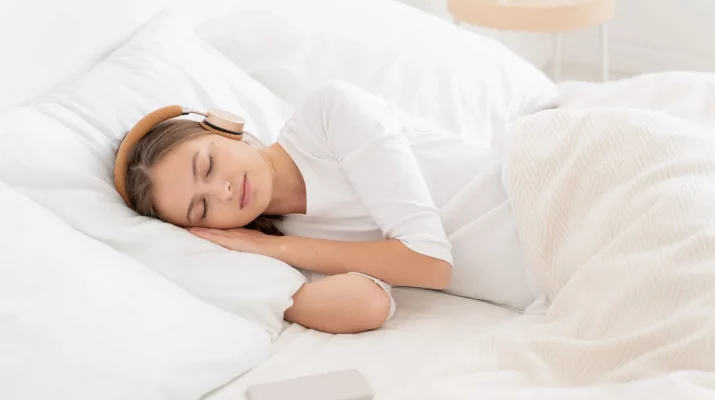Aging and Sleep – Connection
Sleep issues are one of many health issues associated with aging. In reality, inadequate sleep can exacerbate many of these issues and lower a person’s quality of life after age 65. Understanding how aging affects health is more crucial than ever, especially for older persons. Since we spend roughly one-third of our lives sleeping, understanding how aging and sleep interact is essential to promote senior citizens’ general health.
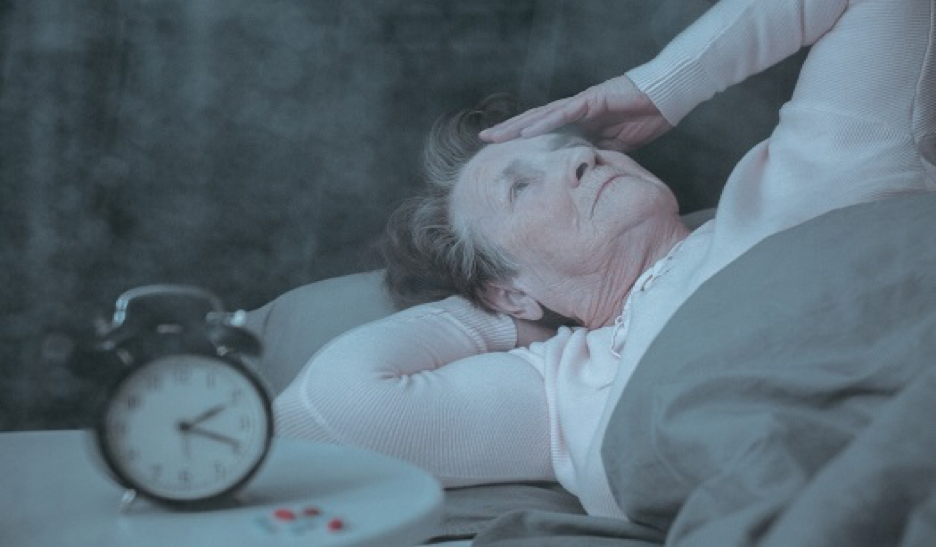
People frequently go through a few changes in their sleeping habits as they get older, such as getting tired earlier, waking up earlier, or getting less deep sleep. However, insomnia symptoms, such as excessive daytime fatigue, restless sleep, and others are not typical aspects of aging. Sleep is still as crucial to one’s physical and mental well-being as it was when they were younger.
How Does Aging Impact Sleep?
Older persons frequently notice changes in the quantity and quality of their sleep. The body’s internal clock changes cause many of these alterations. The suprachiasmatic nucleus (SCN), a master clock in the hypothalamus region of the brain, contains roughly 20,000 cells. Circadian rhythms are 24-hour daily cycles that are controlled by the SCN. These circadian rhythms affect everyday cycles, such as hunger, the release of particular hormones, and feelings of alertness or sleepiness.
Due to the impacts of an aging SCN, people’s sleep patterns majorly change as they age. When the SCN isn’t functioning properly, circadian rhythms can be thrown off, which directly affects how alert and fatigued people feel. The eyes send information to the SCN, and one of the most important cues for preserving circadian rhythms is light. Regrettably, research reveals that many elderly people only receive an hour or less of daylight each day on average.
Common Sleep Problems in Seniors
According to research, between 40% and 70% of older persons struggle with persistent sleep problems, with up to 50% of instances going untreated. Chronic sleep issues can greatly hinder older adults’ ability to go about their everyday lives and lower their quality of life. Typical sleep problems in elderly people include:
1. Urination at Nighttime
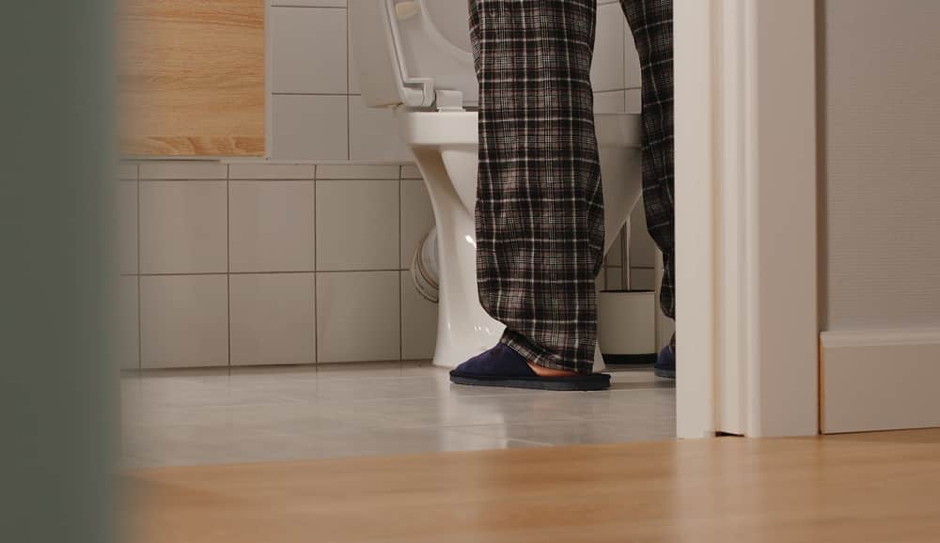
Age-related anatomical changes in the urinary system are one reason why nocturia, or the need to urinate at night, rises. Up to 80% of older persons may experience this problem, which could be a factor in the rise in sleep disturbances.
2. Pain or Discomfort
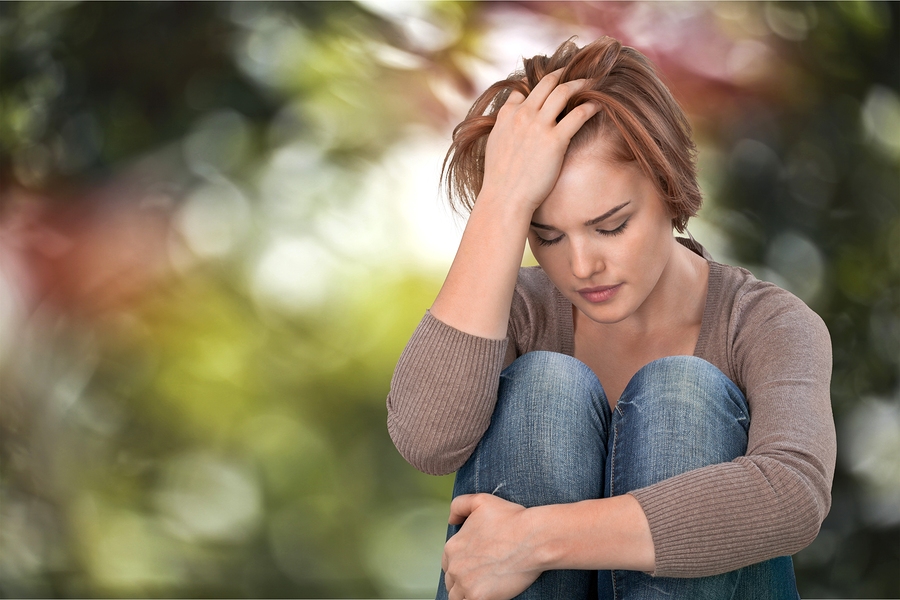
For some older folks, discomfort and pain can prevent them from getting enough sleep. It’s crucial to talk to a doctor if the pain is preventing the person from falling asleep since pain and insomnia can spiral into a vicious cycle in which less sleep can cause more discomfort.
3. Daytime Drowsiness
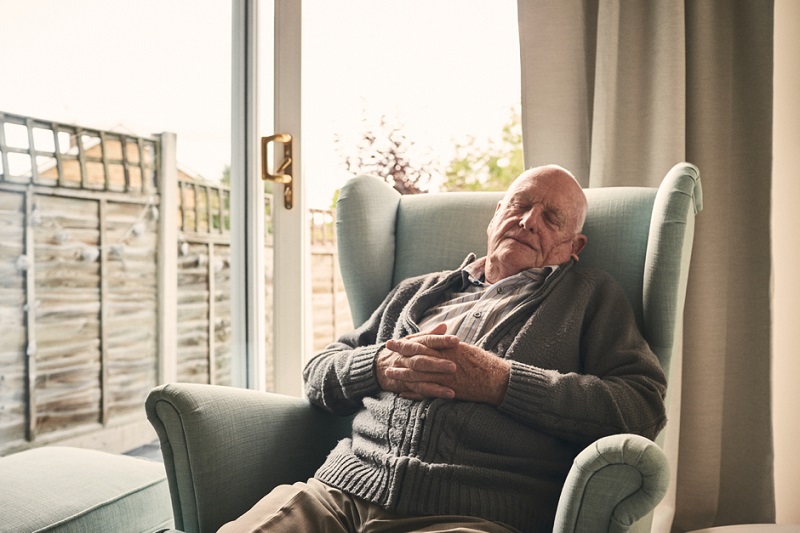
Contrary to popular belief, growing older does not necessarily lead to increased daytime sleepiness. An excessive amount of daytime sleepiness affects 20% of older adults, which may indicate a health issue rather than simply old age. In older persons, excessive daytime sleepiness may be a sign of conditions like sleep apnea, cognitive decline, or cardiovascular problems.
4. Insomnia

One of the most prevalent sleep problems in older persons is having chronic trouble falling or staying asleep. Numerous overlapping variables may contribute to insomnia, but treatment can help.
5. Restless Leg Syndrome
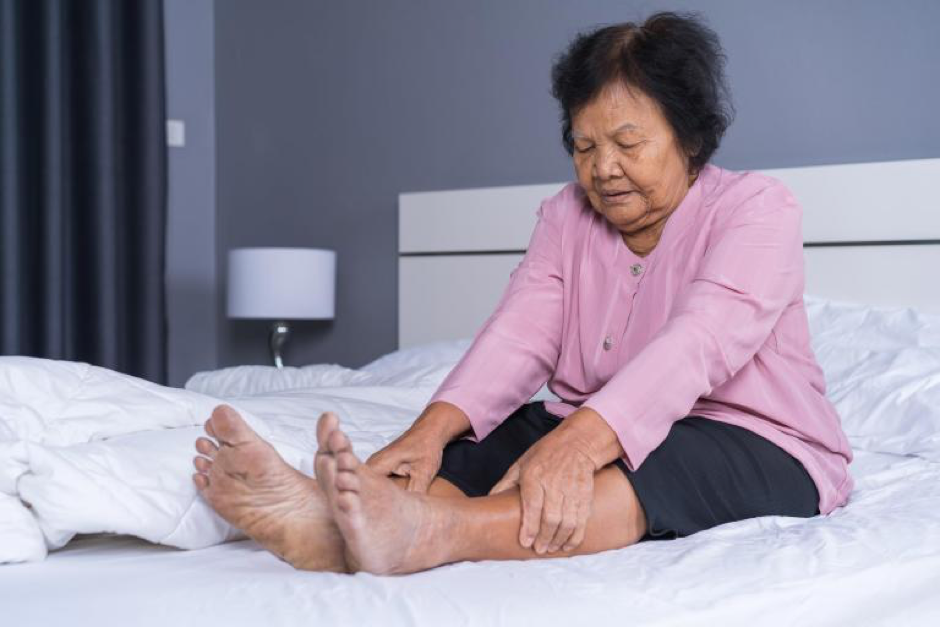
While 4% to 11% of older adults experience periodic limb movements of sleep (PLMS), 9% to 20% of older adults experience restless leg syndrome (RLS)13. During rest or sleep, RLS patients experience the impulse to move their legs. Involuntary movements of the lower limbs, most frequently the feet, are brought on by PLMS. Both problems have a major effect on sleep and general quality of life.
6. Sleep Apnea

Breathing pauses might occur while sleeping as a result of obstructive sleep apnea. These pauses are caused by the upper airway repeatedly collapsing (apnea) or partially collapsing (hypopnea). Sleep apnea disrupts sleep and may lower oxygen levels, which can cause headaches, drowsiness throughout the day, and problems thinking clearly.
7. REM Sleep Behavior Disorder
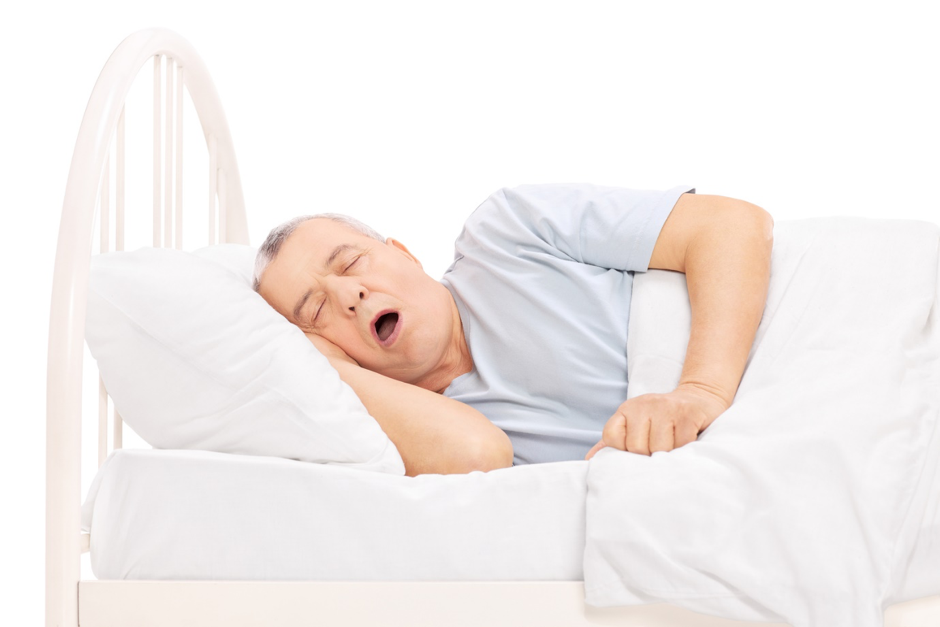
RBD (REM sleep behavior disorder) is more common in older adults. However, this illness can make people act out their dreams, often violently, even though most people’s bodies remain still while they are dreaming.
How Does Music Help Older Sleep Well?
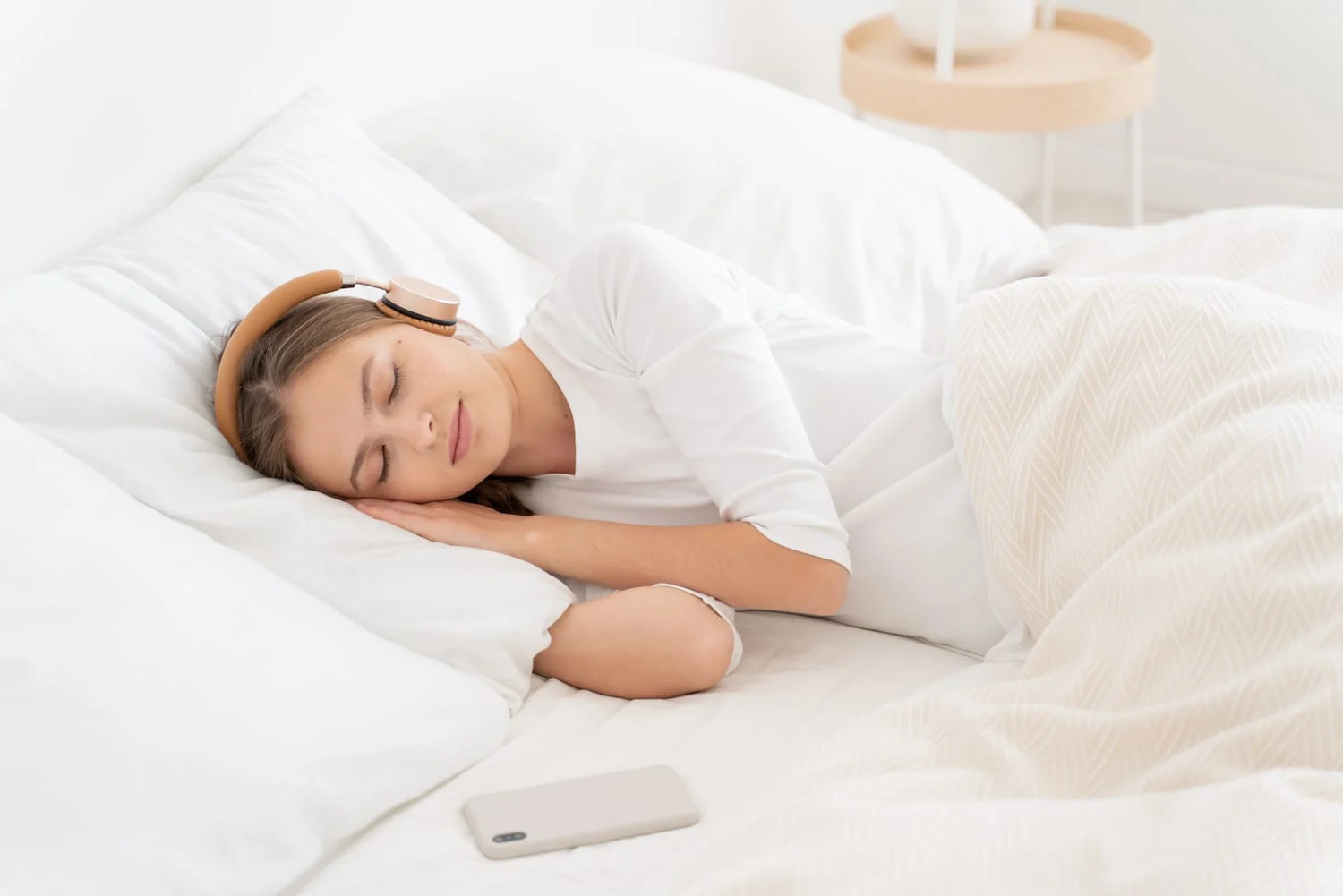
The elderly may sleep better at night if they are listening to relaxing music. According to the study that comes next, listening to soothing music an hour before bed can benefit older persons who have trouble falling asleep at night.
The Key Role of Music in Older Adults Getting Quality Sleep:
- The quality of older individuals’ sleep is improved more by calming music than by rhythmic music.
- When listening to music for 30 to an hour before bed, older folks (60 and up) who live at home sleep better.
- For older folks to get the best benefits from listening to music, it should be done for more than four weeks.
Older persons who listened to calming music before bedtime reported better quality sleep and calming music performed significantly better than rhythmic music in this regard. According to studies, listening to soothing music before bed may help a person sleep better by reducing blood pressure, breathing rate, and heart rate. This in turn aids in reducing tension and anxiety levels. Studies have also shown that listening to music for longer periods, more than four weeks improves the quality of sleep more than listening to it for shorter periods.
According to their research, home-bound seniors 60 and older who listen to music for at least 30 minutes before bedtime, sleep better. It has been discovered that relaxing music, which is slower and quieter, improves sleep quality more than rhythmic music. For the greatest benefit, it is also advised that elderly persons listen to music for longer than four weeks.
Older adults who use music therapy to improve their sleep, especially when they listen to more tranquil music for at least four weeks, report feeling safer and more rested.
Conclusion
With age, sleeping patterns frequently shift. The typical number of times older folks wake up during the night is three to four. They get up earlier as well. There may be a minor reduction in total sleep time, and the transition from sleep to wakefulness is frequently rapid. Seniors may experience lighter sleep than usual as a result of this. To help them sleep better give them a habit of listening to calmer music that will not only make their sleep better but also their life much healthier.

